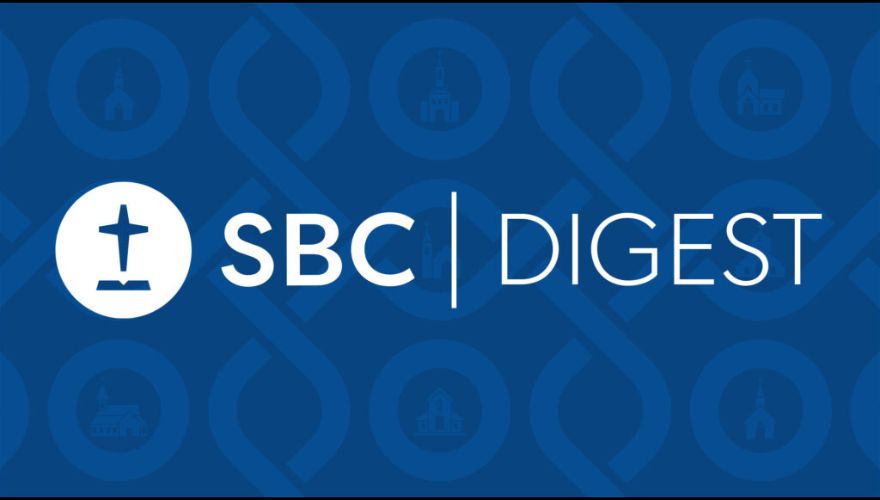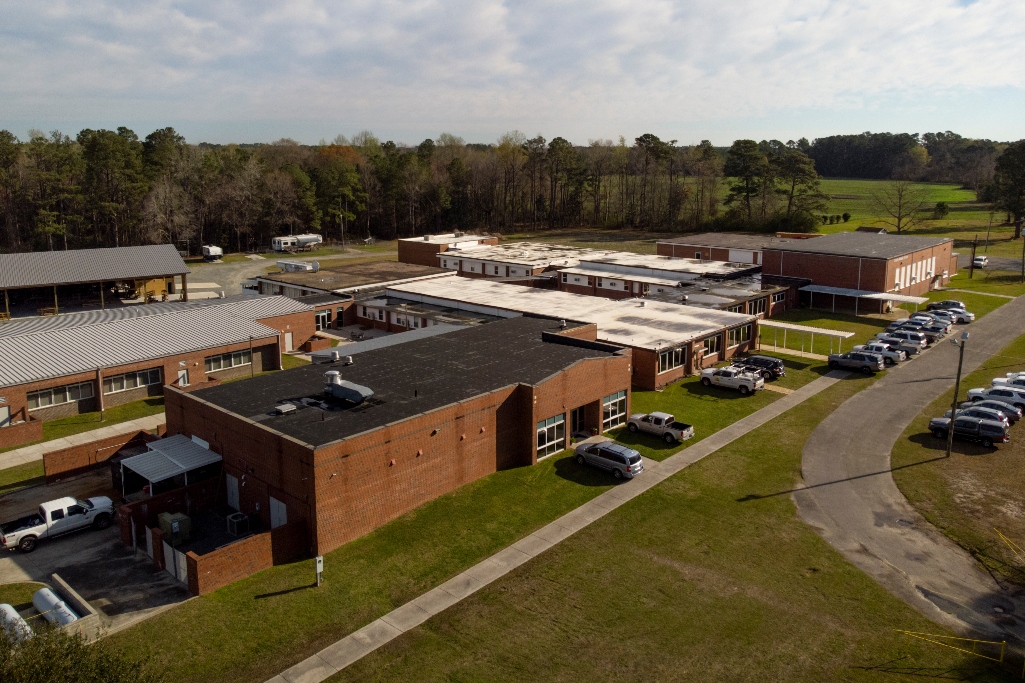
The first four to complete the Black Multicultural Pipeline residency received their certificates at the recent Florida Baptist Convention (FBC) annual meeting. Pictured left to right are: former FBC state executive Tommy Green, who supported the program; Patrick Coats II, minister at Kingdom Covenant Church in Homestead; Rashard Wright, planter at Connect Church in Miami Gardens; Erik Cummings, Black Multicultural analyst for the Florida Baptist Convention; Marc Hughes, pastor of Glendale Baptist Church Brownsville in Miami; and Micah R. Whitley, pastor of Kingdom Covenant Church in Homestead.
JACKSONVILLE, Fla. (BP) — In year five as a minister, Greg Perkins hit what he calls his “leadership lid.”
“I began facing problems and challenges I wasn’t equipped for,” said Perkins, pastor of The View Church in Menifee, Calif., and president of the National African American Fellowship (NAAF). “If I had a cohort of people where I could exchange information and learn strategies and tactics from more experienced pastors, it would have been invaluable to me.”
Every minister has been in the same position. No matter how ready you feel you are, no matter the support in its various forms you have from friends, family and ministry partners, there comes a time when inexperience becomes a factor. You need guidance from those with a few more years behind the pulpit.
That sentiment is key to a training program for African American ministers developed by the Florida Baptist Convention (FBC) that recently produced its first class out of a pilot group. NAAF will begin a partnership with the program in January, “fleshing out” its role before a more involved presence to come next fall, said Perkins.
The idea for the program came to Patrick Coats, FBC East Regional catalyst, a couple of years ago when he was in Nashville as his wife Archalena attended a meeting as a member of the Southern Baptist Convention (SBC) Executive Committee.
Discussions with other pastors included the smaller number of those entering the ministry. One difference today, Coats said, seemed to be fewer public calls to do so.
“Aside from the Spirit’s nudging, that’s a big reason my friends and I are in the ministry,” he told Baptist Press (BP). “We want to add that back and see if it makes a change in young guys entering that space.”
Further meetings with other ministry leaders drew discussion to the importance of mentorship.
“Guys shared stuff like when they got to spend time with Adrian Rogers and learned something about preaching,” Coats said. “What would it look like for our veteran preachers to partner up with some of our younger guys?”
Essential training
A virtual ministry training cohort was the result. Thirteen essentials for ministry readiness are taught by different ministry leaders. Coats leads the session titled “What We Believe,” which is focused on the Baptist Faith and Message 2000. The first class is “The Call,” led by Jerome Symonette, pastor of restoring Grace Church in Fort Lauderdale.
The essentials are developed to provide robust training capable of allowing a new minister to serve in various capacities. Input from pastor leaders along the way helps clear the picture for one’s calling.
“The veteran pastor can bring discernment and some clarity on whether someone is suited to be a church planter, youth pastor or other position,” said Coats. “It develops a pathway.”
Coats told then-Florida State Director Tommy Green about the idea.
“He loved it and said, ‘Let’s do it,’ so we began a pilot program,” said Coats.
Clayton Clore, president of the Baptist University of Florida (BUF), heard about the program and recognized its potential. The university became a partner of the effort and awarded certificates to the four who completed the pilot program.
BUF was created in 1943 as an educational ministry of the state convention. It now includes the Certificate of Ministry Training alongside its Master of Divinity and Master of Theological Studies programs and, beginning next fall, a Doctor of Ministry degree. All are offered in four languages — English, Spanish, French Creole and Portuguese.
“These degrees are contextually crafted by Florida Baptists and for Florida Baptists to meet the needs of our state’s unique ministry context,” said BUF Executive Vice President John Massey. “Our desire and commitment are to equip the diverse range of church leaders who are called to serve Florida Baptists.
“We’re excited because the university is opening up their graduate program in the fall,” Coats said. “So some of those guys with undergraduate degrees will now be able to combine into that for continuing education and still have relationships with those pastors.”
He pointed out that the Ministry Equipping Pipeline — its official name — acts as a blueprint for any network to use in any residence setting for equipping leaders.
Lessons passed down
Micah Whitley, pastor of Kingdom Covenant Church in Homestead, Fla., was one of the four to earn a certificate and encourages other pastors to become part of it.
“Two major benefits stood out to me,” he said. “First, the program established a pastoral community around me and the other cohort members. We now have at least 10 other local or regional pastors we’ve not just learned from but developed a relationship with and can call on when needed.
“Second, the spiritual and experiential wisdom these pastors shared has been an asset to me just starting out as a pastor. I know I’m not having to learn some things the hard way because those lessons are being passed down now, at the start of my pastoral journey.”
Another group of eight are about to begin through the cohort, Coats said.
Moving to the next level
Perkins’ “leadership lid” was lifted when he connected with Mark Croston, director of Black Church Ministry and Partnerships at Lifeway Christian Resources.
“He invited me to Nashville for a learning event and then did some one-on-one coaching with me,” said Perkins, who has been in the ministry for 14 years. “That helped me move to the next level, and that’s what we want to provide to other pastors.”
Perkins became acquainted with the program last summer while attending the Black Multicultural Church State Fellowship Conference in Orlando produced by Florida Baptists. NAAF is currently developing a residency fellowship based on the program’s curriculum and framework.
“Florida Baptists provided NAAF with a generous gift of $5,000, and The View Church, where I pastor, matched that gift, so thus far we have $10,000 raised to launch this fellows program,” he said.
Florida’s state representative for NAAF, Coats will lead the national program that is tasked to identify and recruit church planters and those called to lead church revitalizations. It, plus Florida’s efforts to create a pipeline for new ministers, begins with each congregation.
“The church is in the best position to pray for, call out, coach and mentor the next generation,” said Coats. “Once those ministers get mentoring and clarity, we provide them with vocational learning and theological training.”
(EDITOR’S NOTE — Scott Barkley is chief national correspondent for Baptist Press.)


